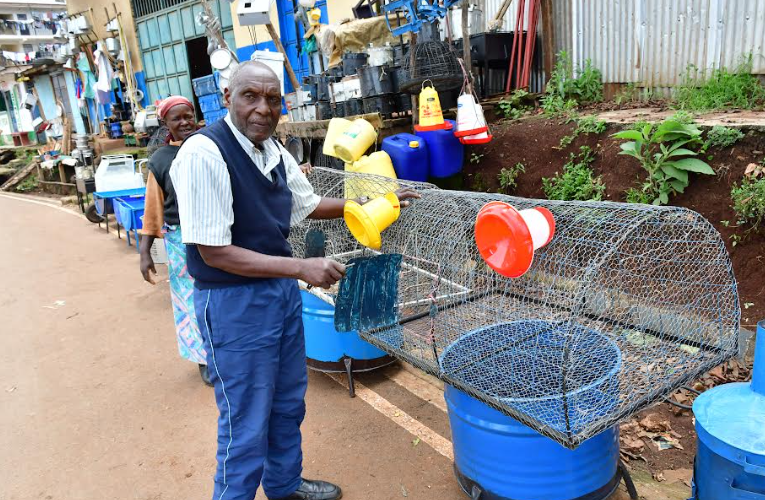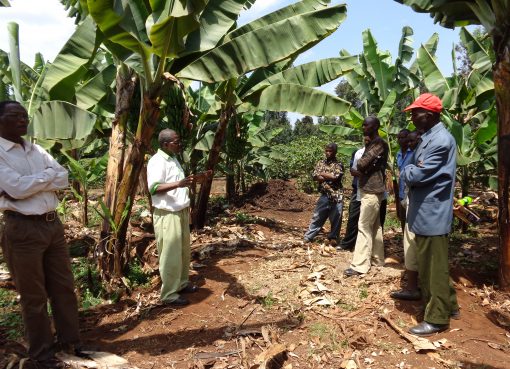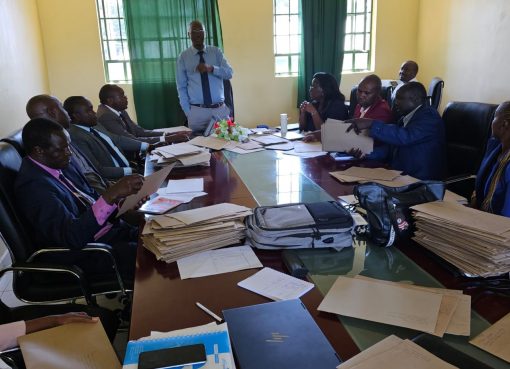In the lively heart of Kericho town where the energy of jua kali artisans converges around Kiprugut Chumo Stadium, a remarkable story emerges amid the rhythmic clatter of metal and the dedication of hard work by the informal creative sector.
Here, the artisans don’t just create products; they transform discarded materials into admirable masterpieces that attract the attention of the people residing in Majengo, Nyagacho, and Eland estates.
Among them is 75-year-old Peter Muiruri Mbugua, a stalwart figure whose nearly four-decade journey as an artisan reflects resilience, creativity, and a deep commitment to his craft and the needs of the community within Kericho town.
Mbugua who spoke exclusively to KNA disclosed that he has spent most of his life turning recycled materials into essential items such as charcoal ovens aluminium frying pans and piggy banks crafted from old tins.
“I create items that are useful and encourage the younger generation to save for the future, such as the piggy banks,” Mbugua said.
His journey began in the early 1980s and has blossomed into a fulfilling vocation that supports his family while championing environmental sustainability.
“I am now a grandfather of many and this job enabled me to educate all my children so it has been a very fulfilling job that I will continue to do together with my wife for as long as we still have strength and life,” explained Mbugua
Through his innovative work, Mbugua has educated all four of his children who are all graduates of Bachelors’ and Masters’ programmes, proving that hard work could yield life-changing results.
In addition to crafting metal wares, Mbugua has pioneered the use of recycled car tyres to create popular chicken coops, further showcasing his inventive spirit.
“I’ve trained many of my employees to start their jua kali businesses. The youths need to find creative ways to earn a living, and if the young people would embrace technical skills in this creative industry, it can sort out the unemployment crisis in the country,” he said.
By recycling materials, artisans like Mbugua create raw materials for their crafts while actively participating in environmental conservation.
“Metal waste poses a significant environmental threat, polluting our soil and endangering ecosystems,” he says.
He therefore urged the government to invest in training programmes for young people, to equip them with relevant technical skills to foster self-employment, in the informal sectors like juakali.
“On a good day, I make more than Sh15,000 in sales and so I have no regrets at all. This fabricating business is a good business that the youth can try out and make a good living out of it,” he added.
Even in urban settings with limited space, Mbugua demonstrates that sustainable practices could thrive, pointing out that recently, he also ventured into poultry rearing just within the vicinities of his jua kali stall and disclosed that so far, he has been making good money from it as well.
As the sounds of craftsmanship echo through the streets, Mbugua stands as a testament to resilience, creativity, and the enduring spirit of the jua kali artisan, his journey inspiring not only his community but also countless individuals aspiring to carve their paths in life.
The jua kali sector plays a crucial role in Kenya’s economy, and Mbugua’s work shines as a beacon of hope, and inspiration to the future generations.
By Kibe Mburu and Ken Kiprotich




